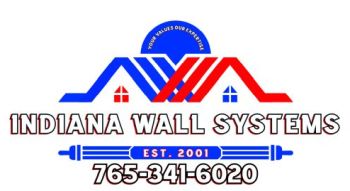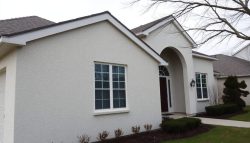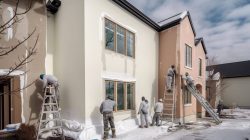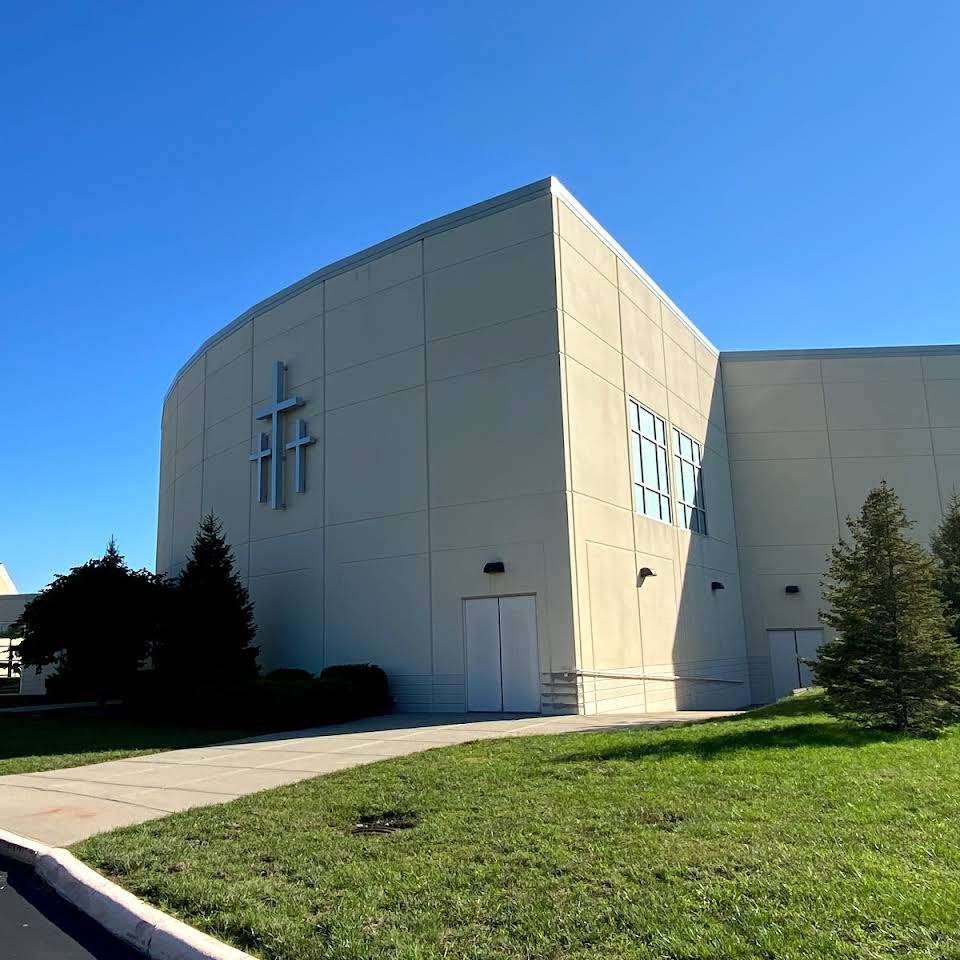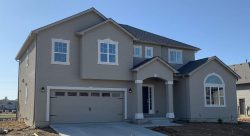Revolutionizing Facades: Discover the Aesthetic and Functional Advantages of EIFS Stucco
Exterior insulation and finish systems (EIFS) have become one of the most popular choices for exterior cladding on commercial buildings. This multi-layered stucco assembly integrates continuous insulation and water protection that enhances overall wall performance. In this comprehensive guide, we’ll examine the key benefits EIFS can offer for your next commercial project.
EIFS also referred to as synthetic stucco, is transforming the way contractors approach insulating and finishing exterior walls. When designed, detailed, and installed correctly, EIFS provides exceptional performance and longevity. Keep reading to understand why EIFS is quickly becoming a top cladding choice.
What is EIFS and How Does it Work?
EIFS consists of an insulation board layer adhered or mechanically fastened to the wall substrate, covered by reinforced polymer and acrylic-based finishes that simulate stucco. This multi-layered system creates an insulated, water-resistant exterior surface.
The key components of a typical EIFS wall assembly include:
- Water-resistive barrier – protects against bulk water penetration
- Insulation board – provides continuous exterior insulation, typically expanded polystyrene (EPS) foam
- Base coat – reinforced layer that adheres insulation to the substrate
- Reinforcing mesh – glass fiber mesh embedded in base coat for impact protection
- Finish coat – integrally colored, textured acrylic/polymer top coat
Unlike conventional stucco applied directly over solid masonry walls, EIFS is designed as a drained wall system that can be installed over various framing substrates. This provides significantly more design versatility. The thick insulation layer also enhances thermal performance beyond what is possible with standard wall assemblies.
Why Consider EIFS for Commercial Building Projects?
There are several compelling performance advantages that make EIFS an excellent exterior wall solution:
Continuous Insulation Enhances Energy Efficiency
The thick, continuous layer of insulation used in EIFS provides outstanding thermal performance that far surpasses intermittent cavity insulation. EIFS is designed to prevent thermal bridging and air infiltration much better than other cladding options. This enables EIFS-clad walls to readily meet modern, increasingly stringent energy code requirements.
Effective Air and Water Barrier Protection
With proper detailing and installation per manufacturer guidelines, EIFS forms an effective barrier against both liquid water and airflow. The multiple integrated layers—from the water-resistive barrier to the reinforced base coat—work together to protect against bulk water intrusion. At the same time, the system resists airflow through the wall assembly when correctly sealed. This superior air tightness and water management is difficult to achieve with other insulation methods.
Design Flexibility for Unlimited Aesthetics
One of the greatest advantages of EIFS technology is the vast design flexibility it provides. EIFS can accommodate virtually any creative aesthetic, ranging from ultra-sleek modern finishes to ornate ornamental detailing. Many different textures and patterns can be achieved, from smooth stucco to dramatic rock shapes. Integrating architectural details is also much simpler with EIFS than with rigid masonry walls. This creative freedom is invaluable for contemporary commercial architecture.
Lightweight Construction and Faster Installation
Unlike masonry construction, EIFS is relatively lightweight and requires less structural support. It also speeds up construction schedules compared to laying heavy brick or concrete masonry. The simple installation process allows EIFS cladding to be completed much faster than many other exterior systems. This advantage becomes even more pronounced in taller multi-story buildings.
Durability That Matches Masonry and Concrete
Architects sometimes voice durability concerns over EIFS compared to traditional masonry or precast concrete walls. However, modern EIFS formulations along with proper installation and maintenance provide exceptional durability on par with these rigid wall types. EIFS offers excellent resistance to impact, ultraviolet radiation, weathering, and even hurricane-force winds. It retains its attractive finish for decades with minimal upkeep required.
Non-Combustible Performance for Fire Safety
Another common misconception is that EIFS poses a greater fire risk than masonry construction. In fact, testing shows that complete EIFS assemblies can readily achieve fire resistance ratings ranging from one to four hours when required. The thick base coat and EPS insulation work together to meet necessary fire codes. Additional fire-rated components can also be incorporated for enhanced performance.
Lower Maintenance Requirements
Unlike real stucco that requires frequent repainting and repairs, professionally installed EIFS retains its pristine appearance with minimal maintenance for decades. It resists cracking, peeling, and decay far better than paints or coatings alone. Overall, EIFS cladding requires much lower maintenance over its lifetime compared to many alternate exterior systems. This provides significant long-term cost savings.
Critical Design Factors for Successful EIFS Performance
EIFS brings together many advantages, but proper design and installation practices are vital for it to perform reliably long-term:
- Use EIFS manufacturers who thoroughly test and certify their systems’ performance capabilities
- Work with experienced EIFS suppliers and installers who closely follow manufacturer guidelines and details
- Select high-quality EIFS materials suited for the specific project requirements and exposures
- Carefully incorporate flashings, drips, and drainage provisions required for moisture management
- Evaluate the substrate and structure to confirm they can handle all loads imposed by EIFS components
- Include regularly spaced control joints for unrestricted building movement and relief of stresses
- Protect completed EIFS surfaces during construction to prevent damage that could compromise performance
- Inspect installed EIFS closely and repair any minor cracks or impacts immediately
- Follow best practices for integrating EIFS with windows, roofing, landscaping, and other interfaces
- Implement a maintenance plan for periodic cleaning, inspections, repairs, and recoating to maximize longevity
Proper design, materials selection, installation, and maintenance are key to realizing the full benefits of EIFS technology for commercial buildings. Attention to detail and workmanship is well worth the investment.
Why EIFS is Becoming the Top Cladding Choice
Considering its many advantages, it’s no surprise that EIFS has seen a surge in popularity and demand in recent years. The factors driving this rapid growth include:
Strict Energy Codes
Modern building codes and sustainability standards contain stringent maximum thermal transmittance requirements that are difficult to meet with conventional construction. EIFS assemblies with continuous exterior insulation easily meet and exceed the most demanding U-factor and R-value regulations.
Lower Construction Costs
The combination of prefabricated EIFS insulation panels along with simplified installation helps minimize on-site construction time and labor. Total installed costs for EIFS cladding are generally less than alternate non-masonry exterior wall systems.
Accelerated Construction Schedules
Because EIFS is relatively lightweight and installed as prefabricated panels, it can be erected much more quickly than heavy, multi-wythe masonry or precast concrete walls. This allows faster enclosure of the building, shortening overall construction schedules.
Creative Design Freedom
EIFS opens up unlimited possibilities for diverse aesthetics and flexibility simply not possible with masonry alone. Many decorative textures and patterns can be achieved to match the architect’s unique vision for the building exterior.
Exceptional Durability and Resilience
Thanks to advances in materials quality and best practice installation, EIFS now provides exceptionally durable, resilient exterior facades. Thermal cycling, ultraviolet radiation, weathering, seismic activity, and extreme storms are all withstood by properly designed and installed EIFS.
Sustainable Performance and Reduced Environmental Impact
By significantly reducing heating and cooling loads, EIFS-clad buildings consume less energy over their lifespan, limiting greenhouse gas emissions. EIFS also contains high recycled content and integrates well with renewable energy strategies.
These compelling advantages make EIFS an ideal choice for modern commercial construction focused on aesthetics, efficiency, sustainability, and cost-effectiveness. As EIFS quality and expertise continue to advance, its usage will only become more widespread.
Common Misconceptions and Myths About EIFS Usage
Despite its immense benefits and technological improvements, some misleading perceptions still exist about exterior insulation and finish systems:
Myth: All EIFS is prone to chronic water intrusion failures.
Reality: Early barrier EIFS did experience systemic moisture problems. But modern drainage EIFS, when correctly installed and maintained, does not suffer from widespread water issues. Testing and quality control have advanced tremendously.
Myth: EIFS requires very frequent repairs and re-coating.
Reality: Quality EIFS products and proper installation provide durable, low-maintenance facades that retain their integrity for decades without frequent interventions. Annual inspections coupled with minor upkeep preserve performance.
Myth: EIFS costs more than conventional wall claddings.
Reality: The installed cost per square foot of a complete EIFS assembly is generally less than many alternate non-masonry wall systems when accounting for both materials and labor.
Myth: EIFS has poor fire performance and cannot meet codes.
Reality: Rigorously tested EIFS assemblies can readily achieve fire resistance ratings ranging from one to four hours. The materials do not melt or drip flames.
Myth: EIFS and masonry construction are incompatible.
Reality: With proper detailing, EIFS integrates extremely well with concrete, concrete masonry, steel studs, precast panels, and brick veneer walls as part of a mixed-cladding exterior.
Myth: EIFS is not very durable compared to stucco or masonry.
Reality: Modern EIFS formulations and improved installation practices result in exterior cladding with exceptional resilience and longevity on par with stucco or masonry walls.
Understanding common misconceptions about EIFS helps clear up uncertainty around its performance capabilities in real-world conditions.
Key Questions to Ask Your EIFS Contractor
To ensure you get a top-quality EIFS installation, be sure to thoroughly vet potential suppliers and contractors. Here are some important questions to ask:
- Are you an approved applicator for the specified EIFS brand with current training credentials?
- How many years has your company been installing this particular EIFS product? Approximately how many square feet?
- Who are the lead supervisors who will oversee the EIFS installation and detailing? What is their experience?
- Will you strictly follow the EIFS manufacturer’s recommended installation guidelines and details?
- How will you handle drainage, flashing, penetrations, openings, and other critical details?
- What daily QA/QC protocols will you implement on-site during the installation process?
- Can you provide project references and examples of previous commercial EIFS work completed recently?
- Will you provide guidance on proper EIFS maintenance and repair? Any warranties on workmanship?
Thoroughly vetting the EIFS contractor is well worth the effort to get a high-quality, long-lasting installation that performs as intended.
Key Takeaways on Maximizing EIFS Performance
When designed, detailed, and installed correctly, EIFS brings together many compelling advantages:
- Provides continuous insulation that significantly enhances wall thermal efficiency
- Creates superior air tightness and water management when properly detailed
- Accommodates virtually unlimited creative aesthetics and architectural details
- Speeds up construction schedules compared to heavy masonry or precast walls
- Delivers durable, resilient facades that retain their integrity for decades
- Meets the most demanding energy codes and sustainability standards
- Integrates well with both conventional and modern construction
- Lowers lifetime costs through reduced maintenance requirements
- Minimizes environmental impact by cutting energy consumption
For these reasons, EIFS has emerged as one of the top cladding choices for commercial buildings focused on performance, efficiency, and aesthetics. Tapping into the benefits of EIFS stucco assemblies can elevate your next exterior wall project to new heights. Contact us or call (765) 341-6020 for a Free EIFS Estimate
